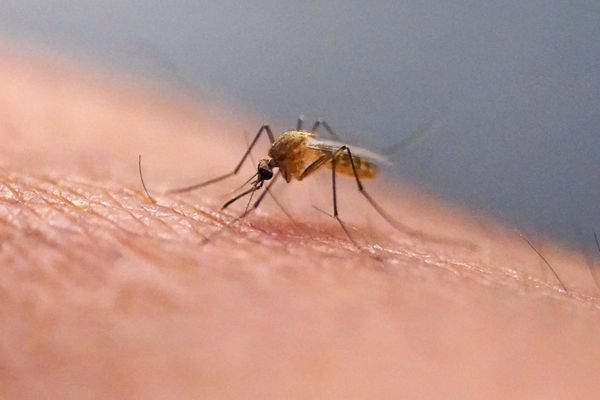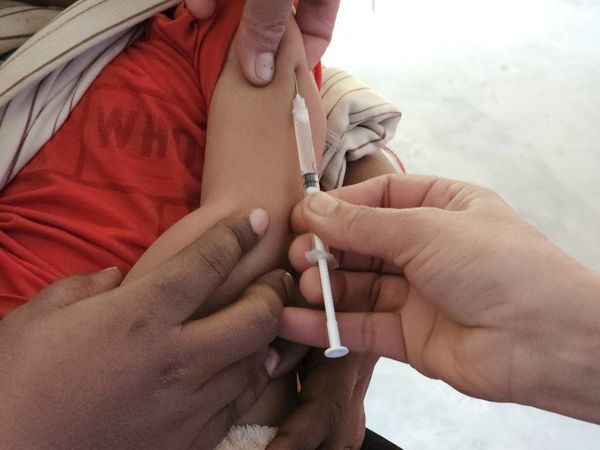
This article contains distressing content.
Bec Sonkkila was in her late 20s and newly in love with yoga when she first heard of the Mahasiddha yoga school in the Indian city of Rishikesh and decided to visit for a month.
Mahasiddha is one of scores of yoga schools around the world associated with the Atman Yoga Federation, also known as the Movement for Spiritual Integration into the Absolute (MISA).
“A lot of it was very beautiful and amazing,” Sonkkila told Crikey. “The really messed-up stuff is hidden so well, you just don’t really see it until you’re around a while.”
Sonkkila soon returned to Australia to begin running workshops alongside other adherents, which is when she said she started to experience some of the “toxic stuff of the organisation”.
It took less than three years for her involvement with MISA to render Sonkkila — a once energetic, high-functioning and social person — incapable of walking a block from her house without having a panic attack.
“If I hadn’t lived this, I wouldn’t believe it,” she said.
In November last year, MISA’s leader and founder Gregorian Bivolaru was arrested in France, facing preliminary charges of human trafficking, organised kidnapping and rape. Fourteen others were handed a shorter list of preliminary charges and in total 40 members of the organisation were arrested as part of the same investigation.
Bivolaru founded MISA in Romania in 1990. As journalist Anke Richter detailed in her 2022 book Cult Trip, after years of legal issues in his home country, Bivolaru fled to Sweden in 2004, where he was granted asylum on the grounds that he had “been persecuted for his religious beliefs”.
In 2013, Bivolaru was sentenced in absentia by a Romanian court to six years’ imprisonment. He was arrested in Paris in 2016 and extradited to Romania. He fled Romania again in 2017 after he was conditionally released. A week later, Finland filed an international arrest warrant, seeking him for human trafficking and nine cases of sexual assault. By the time of his 2023 arrest in Paris last year, he had been on Interpol’s wanted list for years.
MISA has issued statements calling the charges “absurd”, a “witch hunt” and part of a long-running campaign to “discredit and slander” Bivolaru. A press release attributed to the MISA Yoga School (also posted on Atman’s website) insists the French school at the heart of the allegations, while part of the Atman network, is an “independent entity, with its own management and organisation”.
Multiple women around the world have reported to international media that, while studying at yoga schools associated with MISA (the exact connections between MISA, Atman and individual schools are often opaque), they were coerced and manipulated into sexual relationships with instructors, as well as stripping, sex work and performing in pornography. Richter wrote in Cult Trip that according to MISA: “Sex with the septuagenarian [Bivolaru] is seen as a sacred act and the highest honour his devotees can attain.”
“A number of the women [involved] in MISA were professionals — like accountants, legal clerks, psychologists,” Sonkkila told Crikey. “And then, relatively quickly, they are convinced that doing online porn or strip tease or erotic massage is more beneficial to their spiritual path than living with their family and practising yoga at home.”
Sonkkila shared her experience with Crikey ahead of her appearance at DECULT — convened by Richter — the first cult conference in Australasia, happening in October in Christchurch, New Zealand.
Richter told Crikey one trait all cults shared was making impossible promises to, and demands of, their adherents, and blaming the individual when things inevitably fail.
“It’s always on you,” Richter said. “You haven’t worked hard enough.”
Sonkkila was first struck by the apparent disorganisation she came up against while attempting to run the early workshops in Australia. She has come to believe that it was a deliberate tactic.
“They find a way to get you to do more and more and more, to keep you so busy you don’t look under the covers. You don’t have time or resources, you don’t have extra energy to think ‘What about those girls like, you know, that girl that used to come to class, that now doesn’t come to class, but what happened to them?’”
When she did ask questions, she said she was publicly “raged at and shut down”.
“What became clear over time was that these were manipulation tactics,” she said. She found an increasing number of young female students who told her they had a sexual relationship with an instructor from MISA (not Bivolaru).
“They were very upset when I hunted them down, [they were] a mess, unable to put sentences together in a clear way,” She said. “And for one girl, you can be like, ‘Okay, well, it’s just, you know, one upset, unstable person who was looking for love in the wrong place’ … but when it’s a second and a third, then it’s not a coincidence, it’s not an accident.”
Sonkkila said she would share her concerns informally with the other members of the organisation who were organising the yoga workshops.
“What I didn’t understand was that the whole way cults work is these people, the lieutenants, the people who run the things, everyone is trained to do damage control, to shut down the narrative of anything being wrong,” she said.
“I also had a natural sense of trust with them, because that’s how we are as herd beings: ‘I like you, I trust you, [so] I share with you what’s wrong.’ And then that person who’s part of the organisation downplays the issues, and the whole thing keeps going.”
Sonkkila said she was drawn in further and further.
“You start to put yourself out on a limb,” she said. “You’re asked to do a bit more than you’re comfortable with, and slowly you lose the resources to stay connected to other people.”
Over her years at MISA, she said she saw people forced to break up with partners at the behest of the organisation, or moved to MISA ashrams in foreign countries where they were isolated, mendicant and frequently in danger of being deported. She (and other survivors) have described how women were coerced into gaining weight to conform to Bivolaru’s tastes.
“After someone has done something like that,” she said, “there’s no going back.”
In 2015 Sonkkila moved to Finland, and the dynamic — veering between furious public humiliations at the hands of leadership figures, followed by private praise — continued. Sonkkila has come to realise this was a conditioning of her fear response so that she could more easily “be gotten out of the way” when she would attempt to intervene in what she believed to be inappropriate sexual behaviour from figures in the organisation, such as what she saw as the coercion and manipulation of a young woman into a sexual relationship with one of the instructors.
“And that’s how you become complicit,” she said. “I left her there with him. And then how do you live with yourself? How do you start to explain what you’ve seen to the outside world?”
She spoke to people in the organisation (she calls them “confidants” not “friends”) and began to realise just how widespread the abuse was.
Sonkkila said she began writing letters regarding what she had seen — to police and journalists in India (she said she received no reply) and, decisively, to MISA leadership. She claims she was publicly shamed within the organisation and her accusations dismissed as baseless. Eventually, in 2016, she was expelled.
The message both Sonkkila and Richter emphasise is that this can happen to anyone. Richter said there was a “nonsense” stereotype that cults predominantly prey on the weak or the lost.
“There is no clear profile of what a person who gets sucked into a cult looks like, because it can be anybody,” she said.
Sonkkila agrees.
“I mean, the intensity with which I respond to that [implication] … I ask, ‘is there nothing you lack? Is there nothing you are seeking?’ Don’t tell me that looking for something is a sign of weakness,” she said. “That’s coming from a position of power. I have the basics of Maslow’s needs met. I have money, I have time, I have enough power to feel like I can make choices. Now what I want is a sense of peace … That’s actually a powerful person because they’re questioning who they are and how they relate to the world.”
Sonkkila points out that cults take our deepest human needs — for connection, community, purpose — and distort them.
“The most toxic thing about these cult organisations is they break the very fabric that makes you a functional member of society, because you have been manipulated by all of the people that you trusted,” she said. “Everybody has manipulated you into something that was unhealthy for you. No matter how many times you said it was unhealthy for you, you have been pushed and pressured and angled and positioned.”
Richter said one of the main aims of DECULT is to bring about more specialised therapy services for cult survivors in New Zealand.
“It’s desperately needed,” she said. “This could be a starting point.”
Sonkkila said it had taken “a good 10 years” asking herself “How could I not see it? How could I not act sooner? How could I not have shut it down?” to make sense of what happened to her.
“It took [that long] to get to a point where I had self-forgiveness — ‘I am not to blame. I was not stupid’,” she said. “The main thing that I feel is important is to realise that this can happen to you.”
The DECULT conference will take place from 19-20 October and will be live streamed.
If you are affected by any of the issues in this piece, you can contact CIFS Australia, the Survivor Hub or Cult Consulting Australia.
If you or someone you know is affected by sexual assault or violence, call 1800RESPECT on 1800 737 732 or visit 1800RESPECT.org.au.
For anyone seeking help, Lifeline is on 13 11 14 and Beyond Blue is on 1300 22 4636. To speak to a First Nations crisis supporter, call 13 YARN (13 9276). In an emergency, call 000.







